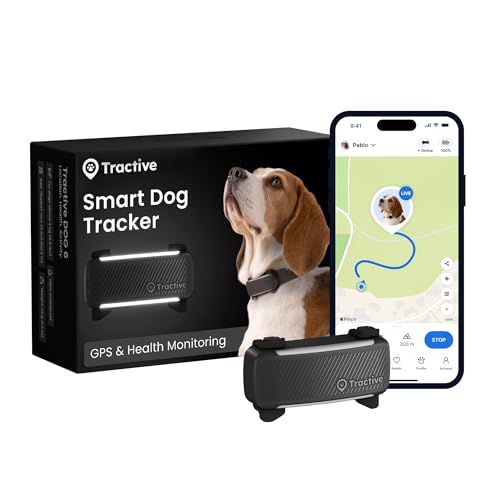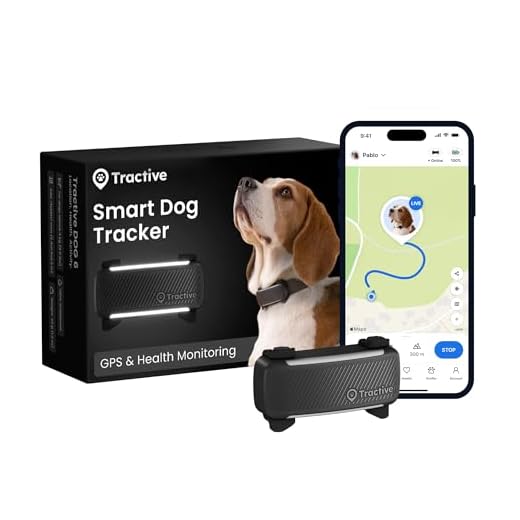




Introducing a special diet often helps alleviate gastrointestinal discomfort in pets. Opt for easily digestible options like boiled chicken and rice or specialised veterinary diets designed for sensitive stomachs. Gradually transition to these foods over a week to avoid further irritation.
Incorporating probiotics can also make a significant difference. These beneficial bacteria help restore healthy gut flora, which is crucial for digestive health. Look for products specifically formulated for animals, and consult a veterinarian for suitable recommendations.
Regular feeding schedules promote digestive stability. Splitting meals into smaller portions throughout the day aids in efficient digestion and reduces stress on the gastrointestinal tract. Keeping a consistent routine can lead to noticeable improvements.
Hydration cannot be overlooked. Ensuring access to fresh water at all times supports overall digestive health. Consider adding electrolytes if dehydration occurs, especially during bouts of vomiting or diarrhoea.
Regular vet check-ups are paramount. Persistent gastrointestinal issues might signal underlying health concerns. A thorough examination, including tests for parasites or infections, can guide appropriate treatment plans tailored to individual needs.
Lastly, monitoring stress levels plays a critical role. Anxiety can exacerbate digestive problems, so providing a calm environment and engaging in regular exercise can help mitigate stress responses.
Treatment Options for Irritable Bowel Syndrome in Canines
Probiotics significantly aid in restoring gut flora balance. Incorporating a high-quality probiotic supplement into a canine’s diet can enhance digestive health. Look for products specifically formulated for pets, ensuring they contain strains beneficial for gastrointestinal function.
Diet modification plays a key role in managing symptoms. A bland diet consisting of easily digestible ingredients like boiled chicken and rice often proves beneficial. Gradually reintroducing regular food can help identify any intolerances. Consider hypoallergenic diets to eliminate potential allergens.
Fiber supplementation can improve stool consistency. Adding soluble fibre, such as pumpkin or psyllium, to meals supports digestion and helps firm up loose stools. Monitor the amount to avoid excessive bulk, which may lead to discomfort.
| Dietary Addition | Benefit |
|---|---|
| Probiotics | Restores gut flora |
| Soluble fibre | Improves stool consistency |
| Hypoallergenic diet | Reduces allergic reactions |
Consultation with a veterinarian is crucial for tailored treatment plans. Regular check-ups can help monitor progress and adjust strategies as needed. If symptoms persist, additional diagnostic tests may be advised to rule out other underlying conditions.
Medication may also be prescribed in some cases. Anti-inflammatory drugs or medications that regulate gut motility can alleviate discomfort. Always follow a vet’s guidance on dosage and duration.
Identifying Symptoms of IBS in Dogs
Observation of specific signs is key for recognising digestive issues in pets. Common indicators include persistent diarrhoea, often alternating with constipation. Stools may appear loose or watery, and frequency of bathroom visits may increase. Pay attention to any changes in appetite; some animals might show reluctance to eat or exhibit sudden cravings for food.
Behavioural Changes
Behavioural shifts can also provide insight. Affected animals may seem lethargic or less active than usual. Increased anxiety or restlessness is another signal; dogs may pace or whine due to discomfort. Look for signs of abdominal pain, such as excessive licking of the belly or a hunched posture.
Weight Fluctuations
Monitoring weight is crucial. Unexplained weight loss can occur, as chronic gastrointestinal distress affects nutrient absorption. Conversely, some pets might gain weight due to dietary changes made in response to digestive issues. Regular weigh-ins can help identify these fluctuations early.
In addition to these symptoms, keep track of any unusual gas or flatulence. Odorous gas might indicate underlying digestive problems. Observing these signs consistently aids in early detection, allowing for timely intervention and improved quality of life for furry companions.
Dietary Adjustments for Pets with Digestive Issues
Switching to a high-quality, easily digestible diet can significantly improve digestive health. Consider these specific changes:
- Limited Ingredient Diets: Choose foods with a single protein source and few additives. This approach helps identify and eliminate potential allergens or irritants.
- High Fibre Content: Incorporate soluble fibres like pumpkin or psyllium. These help regulate bowel movements and can ease discomfort.
- Small, Frequent Meals: Feeding smaller portions multiple times a day helps avoid overwhelming the digestive system, reducing the risk of flare-ups.
- Hydration: Ensure constant access to fresh water. Adequate hydration supports overall digestive function.
- Probiotics: Adding probiotics can promote a healthy gut flora. Look for supplements or foods containing live cultures.
Monitoring food labels is crucial. Avoid artificial preservatives, colours, or flavours, as these can aggravate sensitivities. Transitioning to a new diet should be gradual to prevent further digestive disturbances.
Home-Cooked Options
Some may find home-cooked meals beneficial. A simple recipe could include:
- Boiled chicken or turkey (skinless and boneless).
- Plain white rice or sweet potatoes.
- Cooked carrots or green beans.
Always consult a veterinarian before making significant changes to the diet to ensure all nutritional needs are met.
Commercial Diets
Look for veterinary-formulated commercial options specifically designed for sensitive stomachs. Brands that focus on gastrointestinal health can be a safe choice.
Regular evaluation of dietary responses is key. Keeping a food diary may help track any correlations between meals and symptoms, aiding in long-term management strategies.
Medications and Supplements for Managing IBS
Probiotics can be a beneficial addition to the regimen. These live microorganisms help restore the natural balance of gut flora. Look for formulations specifically designed for canines, with strains like Lactobacillus and Bifidobacterium.
Antispasmodic medications may provide relief from cramping and discomfort. Products containing medications such as Buscopan can help relax the intestinal muscles. Consult a veterinarian to determine appropriate dosages for the specific breed and size.
Prescription medications like metronidazole or tylosin can address underlying infections or inflammation in the gastrointestinal tract. These antibiotics are often used when a vet suspects a bacterial overgrowth or infection contributing to digestive issues.
Digestive enzymes are another option. They support the breakdown of food components, aiding in nutrient absorption and reducing gastrointestinal upset. Look for formulations that include amylase, protease, and lipase.
For inflammation, omega-3 fatty acids can be beneficial. Fish oil supplements help reduce inflammation in the gut, promoting overall digestive health. Ensure the product is suitable for pets and follow dosing guidelines provided by a veterinarian.
Herbal remedies such as slippery elm or chamomile may also provide soothing effects on the gastrointestinal tract. These should be used cautiously and under veterinary supervision to ensure safety and proper dosage.
Regular consultations with a veterinarian are key to monitoring any medication or supplement regimen. Adjustments may be necessary based on individual responses, ensuring the best outcomes for the dog’s health.
Implementing Stress Reduction Techniques
Regular exercise is key for alleviating anxiety. Engaging in daily walks or playtime can significantly lower stress levels. Activities like fetch or agility training not only provide physical stimulation but also strengthen the bond between pet and owner.
Creating a calm environment is essential. Designate a quiet space with comfortable bedding and toys where the furry friend can retreat during stressful moments. Soft music or white noise can also help mask disruptive sounds from the outside world.
Incorporating aromatherapy can be beneficial. Scents like lavender and chamomile have calming properties. Use pet-safe diffusers or sprays to create a soothing atmosphere. Always ensure that any essential oils used are safe for pets to avoid adverse reactions.
Consistent routines aid in reducing anxiety. Maintaining regular feeding times, walks, and play sessions can provide a sense of stability and security. Predictability in daily activities allows a pet to feel more at ease.
Training techniques focused on positive reinforcement can help build confidence. Rewarding good behaviour with treats or praise encourages a more relaxed disposition. This approach strengthens trust and reduces anxiety during potentially stressful situations.
Consider exploring supplements designed for stress relief. Ingredients like L-theanine and valerian root are known for their calming effects. Always consult a veterinarian before introducing new products to ensure they are safe and suitable.
Monitoring diet is crucial. Certain foods can impact overall well-being. For more information on food choices, check out this article on why does dog food stink to ensure optimal nutrition.
Lastly, socialisation with other pets and people in a controlled manner allows for gradual exposure to new experiences, reducing fear-based reactions. Gradually introducing new environments can help build resilience and adaptability.
Monitoring and Tracking Your Dog’s Condition
Keeping a detailed log of your furry friend’s health can significantly enhance understanding and management of their gastrointestinal issues. Start by noting every meal, including ingredients and portion sizes. This helps identify any potential triggers in their diet. Use a simple notebook or a digital app to track all entries consistently.
Record daily bowel movements: frequency, consistency, and any changes in colour or odour. Changes in these areas can provide valuable clues about your pet’s digestive health. If symptoms flare up, correlate them with recent meals or activities to identify patterns.
Utilising Technology for Tracking
Consider using pet health apps designed specifically for monitoring symptoms, medication schedules, and dietary changes. These tools often come with reminders for vet appointments or medication doses. Additionally, some apps allow for photo uploads, enabling you to document changes in your companion’s physical condition over time.
Regular Vet Check-ups
Schedule routine veterinary visits to discuss the recorded observations. A well-maintained log can assist the veterinarian in making informed decisions regarding treatment options. If your pet is under medication or dietary adjustments, keep track of their effects and report these findings during check-ups. Regular communication with the vet ensures that any necessary modifications to the treatment plan are made swiftly.
Consulting with a Veterinarian for Tailored Treatment
Seeking professional advice ensures an accurate diagnosis and a suitable care plan. Each canine is unique, and a veterinarian can provide insights into specific needs and conditions.
Choosing the Right Veterinarian
- Look for a vet with expertise in digestive disorders.
- Consider recommendations from fellow pet owners or local dog communities.
- Check for certifications or additional training in gastroenterology.
What to Discuss During the Consultation
- Share detailed observations regarding behaviour, diet, and any unusual signs.
- Ask about diagnostic tests, like blood work or ultrasounds, to rule out other issues.
- Inquire about tailored dietary plans, including suitable ingredients and feeding schedules.
- Request information on potential medications or supplements that could assist in managing symptoms.
- Discuss stress management strategies that might be beneficial for the pet.
Regular follow-up visits help in adjusting the approach based on the canine’s response to treatment. Collaboration with a veterinarian leads to a more personalised and effective management plan, ensuring the furry friend thrives.









